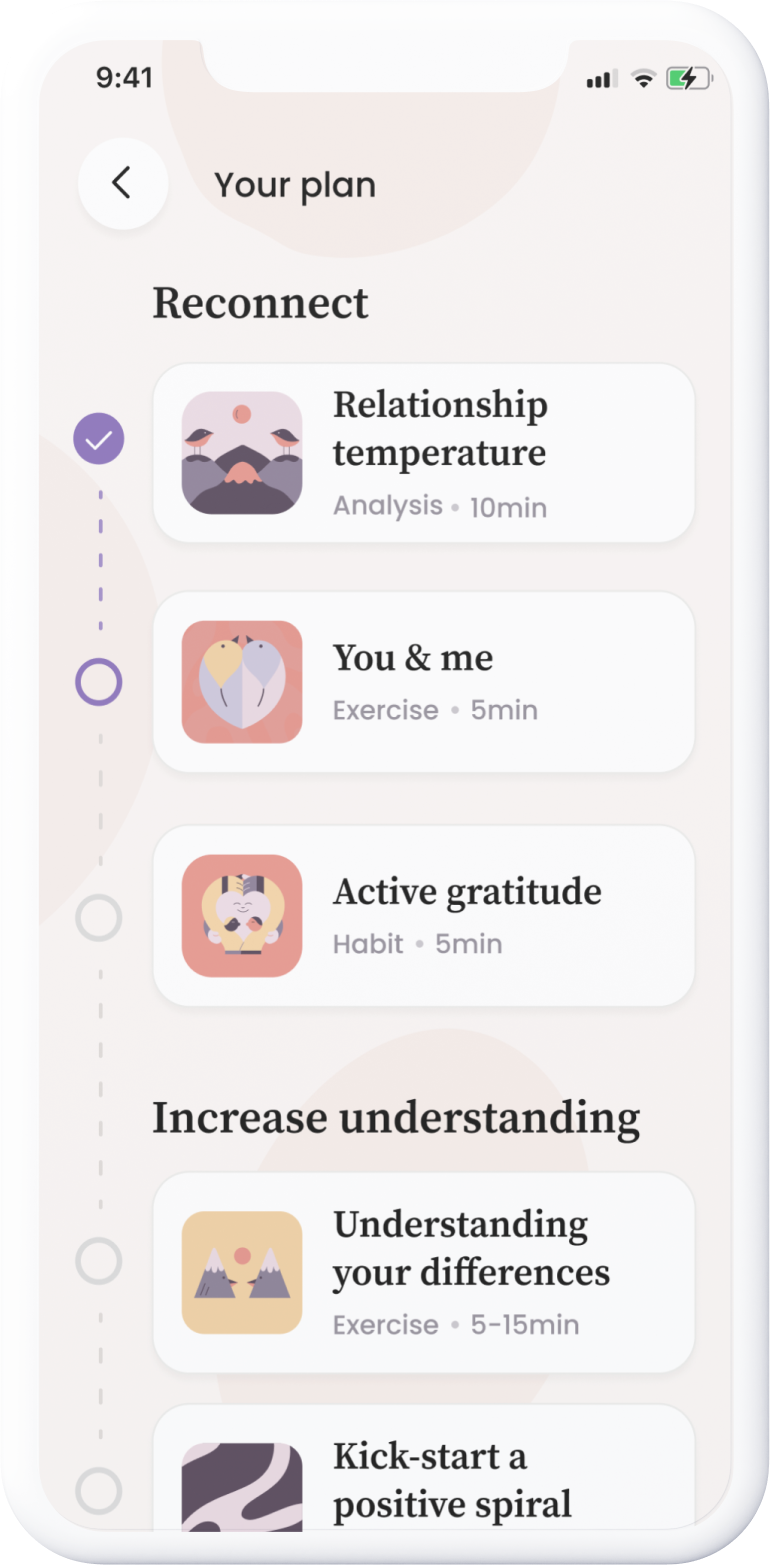Retroactive Jealousy - 5 Steps to Fight It
Understanding and Beating Retroactive Jealousy: Causes, Effects, and Coping Strategies- 28 March 2024
- 7min

In the realm of human emotions, jealousy can be a challenging and often distressing experience. However, for some individuals, there exists a specific form of jealousy known as retroactive jealousy, which takes a unique toll on their mental well-being. Retroactive jealousy is a type of jealousy that arises from learning about your partner's past romantic or sexual experiences. It can be all-consuming and make it challenging to maintain a healthy relationship.
Understanding retroactive jealousy
Retroactive jealousy, also referred to as retrospective jealousy, is an intense feeling of jealousy or anxiety triggered by thoughts, images, or knowledge of a partner's past romantic or sexual experiences. It manifests as an obsessive preoccupation with one's partner's past, leading to intrusive thoughts, mental comparisons, and a profound sense of insecurity.
Individuals grappling with retroactive jealousy often find themselves caught in a turbulent internal battle. They may feel haunted by irrational fears, constantly imagining vivid scenarios involving their partner and past lovers. These intrusive thoughts can trigger a range of emotions, including anger, sadness, insecurity, and shame. The person may question their self-worth, their partner's commitment, and the overall stability of the relationship.
What causes retroactive jealousy?
Retroactive jealousy can stem from a combination of factors, including personal insecurities, low self-esteem, fear of abandonment, and a desire for exclusivity in a relationship. Often, there are clues to be found in one’s personal history. Are there any connections between your early life experiences and your present ability to trust others? Perhaps you recall instances from your childhood where you felt betrayed or abandoned. It's possible that important figures in your life were absent when you needed them most, or that you witnessed deceit within your parents' relationship.
Such experiences can leave a lasting impact, leading to feelings of low self-worth or a pervasive sense of anxiety. These emotional burdens can make it more challenging to trust others, often prompting a desire for control and reassurance within relationships. Fear of abandonment or betrayal becomes an emotional sensitivity.
Increase your self-awareness
In moments when doubt arises about your partner, try to pause and observe your thoughts and emotions. Is there a concrete and valid reason behind your feeling, or does your reaction stem from past events? Attempt to distinguish between what pertains to your present relationship and what is influenced by past experiences. Understand that your emotional response is influenced by various factors, including recent events, your individual identity, and your personal history.
Feelings hold significant power, when we feel anxious or uncertain, we tend to seek control or certainty. It is natural to experience impulses to question your partner, check their phone, or even contemplate leaving the relationship altogether in order to escape the discomfort and pain of uncertainty. However, this is seldom helpful in the long run. Here is what you can do instead, to help you cope with retroactive jealousy and actually improve your relationship.
5 steps to fight retroactive jealousy
1. Recognise that retroactive jealousy is normal
It's essential to understand that experiencing retroactive jealousy is a normal and common issue that many people face. You're not alone, and it's not a reflection of your worth as a partner. Try to avoid beating yourself up for feeling jealous and instead focus on recognizing it and taking steps to manage it.
2. Practice self-compassion
Dealing with retroactive jealousy can be a challenging and emotional process. It's important to be kind and compassionate with yourself as you work through your feelings. Try to avoid negative self-talk and instead focus on practising self-care. Take time for yourself, engage in activities you enjoy, and seek support from friends and loved ones.
3. Communicate with your partner
Talking to your partner about your feelings is an essential step in managing retroactive jealousy. It can be challenging to have these conversations, but it's important to be honest and open with your partner. Share your feelings in a non-accusatory way, and try to avoid blaming your partner for your jealousy. Instead, focus on finding solutions together and working as a team to manage your emotions.
4. Act as though you felt trusting
Feelings are powerful, and when we feel worried or insecure, we seek a sense of control or certainty. It is entirely natural that if you start to doubt, you get impulses to question your partner, check your partner’s phone or maybe even give up altogether and leave the relationship, just to get out of the unpleasant or even painful state of uncertainty.
If you have gone through the steps above and concluded that the feeling right now is not justified, that what is really going on is you being haunted by previous experiences or simply having a strong sensitivity to uncertainty, see if you can act in a way that goes against the feeling. Simply try to do the opposite of what the feeling is telling you to do.
5. Seek support
Dealing with retroactive jealousy can be challenging, and it's okay to seek professional support. A therapist or counsellor can provide you with the tools and strategies you need to manage your emotions and improve your relationship. They can also help you work through any underlying issues that may be contributing to your jealousy. Or try out Ally, a relationship app developed by psychologists specialising in couples therapy.
Retroactive jealousy is a common issue that many people face. It's important to recognise that it's normal to feel jealous, and there are ways to manage these emotions. By practising self-compassion, communicating with your partner, and seeking support to better understand your emotional reactions, you can overcome retroactive jealousy and improve your relationship. Remember that dealing with retroactive jealousy takes time and effort, but with patience and persistence, you can overcome it and build a stronger, healthier relationship with your partner.








